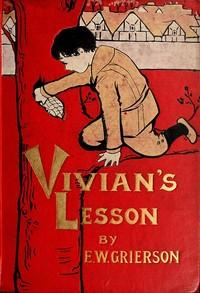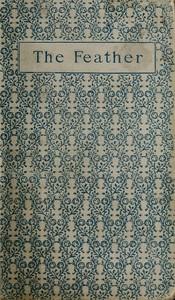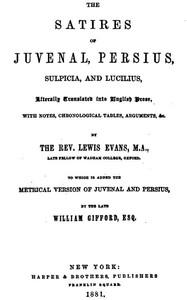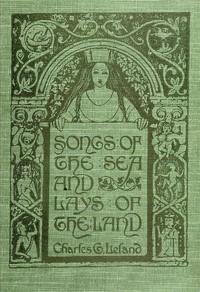Read this ebook for free! No credit card needed, absolutely nothing to pay.
Words: 2855 in 1 pages
This is an ebook sharing website. You can read the uploaded ebooks for free here. No credit cards needed, nothing to pay. If you want to own a digital copy of the ebook, or want to read offline with your favorite ebook-reader, then you can choose to buy and download the ebook.


: Vivian's Lesson by Grierson Elizabeth W Elizabeth Wilson Cowham Hilda Illustrator - Christian life Juvenile fiction; Children Conduct of life Juvenile fiction; Families Juvenile fiction; Deception Juvenile fiction
PAGE INTRODUCTION 5
THE COLLECTOR'S APOLOGY 12
THE NARRATOR'S NARRATIVE 15
NOTES 333
INTRODUCTION.
A few words seem necessary regarding the origin of these stories, in addition to what the Narrator says for herself in her Narrative, and what is stated in the Collector's "Apology."
With the exception of two or three, which will be recognized as substantially identical with stories of Pilpay or other well-known Hindoo fabulists, I never before heard any of these tales among the Mahrattas, in that part of the Deccan where the Narrator and her family have lived for the last two generations; and it is probable that most of the stories were brought from among the Lingaets of Southern India, the tribe, or rather sect, to which Anna de Souza tells us her family belonged before their conversion to Christianity.
The Lingaets form one of the most strongly marked divisions of the Hindoo races south of the river Kistna. They are generally a well-favored, well-to-do people, noticeable for their superior frugality, intelligence and industry, and for the way in which they combine and act together as a separate body apart from other Hindoos. They have many peculiarities of costume, of social ceremony and of religion, which strike even a casual observer; and though clearly not aboriginal, they seem to have much ground for their claim to belong to a more ancient race and an earlier wave of immigration than most of the Hindoo nations with which they are now intermingled.
The country they inhabit is tolerably familiar to most English readers on Indian subjects, for it is the theatre of many of the events described in the great Duke's earlier despatches, and in the writings of Munro, of Wilkes, and of Buchanan. The extraordinary beauty of some of the natural features of the coast scenery, and the abundance of the architectural and other remains of powerful and highly civilized Hindoo dynasties, have attracted the attention of tourists and antiquaries, though not to the extent their intrinsic merit deserves. Some knowledge of the land tenures and agriculture of the country is accessible to readers of Indian blue-books.
But of all that relates to the ancient history and politics of the former Hindoo sovereigns of these regions very little is known to the general reader, though from their power, and riches and long-sustained civilization, as proved by the monuments these rulers have left behind them there are few parts of India better worth the attention of the historian and antiquary.
Of the inner life of the people, past or present, of their social peculiarities and popular beliefs, even less is known or procurable in any published form. With the exception of a few graphic and characteristic notices of shrewd observers like Munro, little regarding them is to be found in the writings of any author likely to come in the way of ordinary readers.
But this is not from want of materials: a good deal has been published in India, though, with the common fate of Indian publications, the books containing the information are often rare in English collections, and difficult to meet with in England, except in a few public libraries. Of unpublished material there must be a vast amount, collected not only by the government servants, but by missionaries, and others residing in the country, who have peculiar opportunities for observation, and for collecting information not readily to be obtained by a stranger or an official. Collections of this kind are specially desirable as regards the popular non-Brahminical superstitions of the lower orders.
Free books android app tbrJar TBR JAR Read Free books online gutenberg
More posts by @FreeBooks

: The Feather by Ford Ford Madox Brown Ford Madox Illustrator - Fairy tales; Fantasy fiction; Conduct of life Juvenile fiction; Children Conduct of life Juvenile fiction; Princes Juvenile fiction; Selfishness Juvenile fiction; Magic Juvenile fiction; Princes


: The Satires of Juvenal Persius Sulpicia and Lucilius Literally translated into English prose with notes chronological tables arguments &c. by Juvenal Lucilius Gaius BCE BCE Persius Sulpicia Evans Lewis Translator Gifford William Translator - Verse satire





